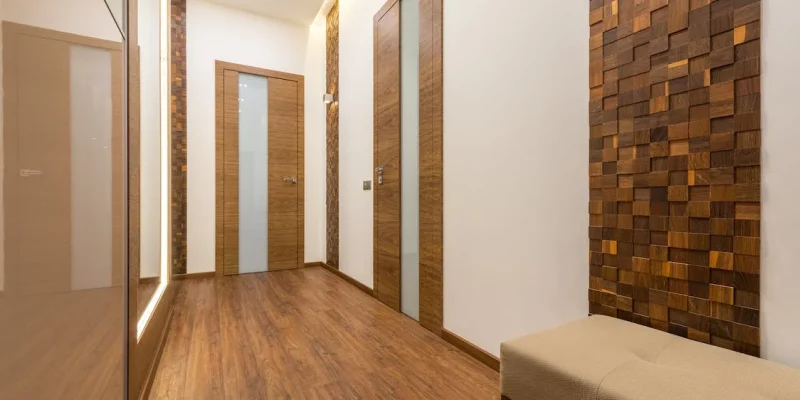It is essential to consider carefully before investing in a home improvement project. Before you decide to remodel your home on a budget like a kitchen, bathroom, or living room, you need to make a lot of considerations first. Before beginning any remodeling project, we will go through these factors to think about with the assistance of Overall Renovation.
The reason behind the renovations
The reason you want to remodel your home is the first thing you should think about and consider. You can make home improvements for various reasons, but you need to consider each one carefully before making any decisions. Specific problems may call for significant upgrades, but in the long run, those improvements will cost more time and money than they’ll save. If there is no possibility of increasing the value of your home through significant repairs or improvements, you should probably consider selling it instead.
Suppose you have decided to remodel your home because of structural issues such as cracks in the foundation, bad wiring, or plumbing. Before hiring, you should ensure that any possible contractors have experience dealing with repairs.
Budget
The following issue that needs to be taken into consideration by you is your financial plan. If the cost of the renovations is going to be higher than the value of the home, then it may not be worthwhile to perform the improvements. You may acquire a ballpark figure for how much money will be needed for repairs. Do local research contractors and find out how much they often charge for jobs comparable to the one you need to be done. However, remember that this figure could shift depending on the company that completes the work. Larger organizations typically have more overhead costs, which is why their bids are typically higher than those of smaller companies.
You could afford a minor home improvement project, but if you can’t afford the costs of extensive repairs or renovations, you shouldn’t even get started on the task. If cracks in your foundation require extensive replacement work to be done before anything else can happen. It may need more time and money than any other renovations could save. So it may just be better for you financially to sell the home instead of attempting to make any more improvements to it.
Available space
The available work you are willing to undertake on your own instead of employing professionals is also influenced by the amount of space you have. Smaller jobs typically mean less stress because they won’t take as much time and still leave time for other things, whereas more extensive renovations may require your full-time focus, which means you won’t have any time left over for anything else.
It is essential to verify that there will be sufficient space for the new layout, regardless of whether you plan to extend your existing home or rebuild a more compact area. If it is necessary to tear down walls and relocate piping or wiring, ensure that all of these concerns have been resolved in advance; otherwise, the renovations’ costs may be prohibitively expensive. You should also increase the amount of storage space required after the restoration is complete.
Design
The layout of your home is the single most critical component to consider. Regardless of the impressive renovations, you may have difficulty finding ways to enjoy living there if the aesthetic does not suit your preferences.
Deciding on a style or theme for each room in the house before beginning any remodeling job is essential. Then, you need to maintain that style or theme throughout the house by using consistent colors and materials. It may look cluttered and untidy if you try to make diverse styles work together. On the other hand, if everything matches up beautifully, you will have a lot less work to do. When selecting new flooring and paint color schemes, you should remember that all rooms should have an appearance that is consistent from a distance and up close.
Be sure to incorporate anything else that might be relevant to the design, such as the installation of additional lighting, so that everything will continue to function well after the remodeling work has been finished.
Contractor
Get multiple estimates from different service contractors before you choose any contractors. When you have more information, you have a better chance of finding someone who offers reasonable prices, is willing to listen to your concerns, and appropriately addresses those concerns without taking shortcuts or making promises they can’t keep on time. The more data you get, the more you will find this person.
Before you agree to engage anyone for the renovation work, it is essential to examine their references first. It helps to eliminate potentially difficult circumstances, such as disregarding problems that aren’t immediately apparent but may become evident later or having poor abilities in providing customer care. After it comes to getting repairs done, you know what kind of person you’re dealing with, even if there are problems that need to be solved while working together so that both sides may be happy when the improvements are over.
Make sure there’s enough damp proofing.
Any building, especially an older one, could be at risk from dampness. Too much moisture in the air causes dampness, and familiar sources include showers, baths, steam from the kitchen, and clothes drying indoors. Water damage manifests as condensation on windows and discoloration or peeling of wallpaper, paint, or plaster on interior walls. Don’t start any major renovations until the building is appropriately damp-proofed. Visible wetness indicates either insufficient or failing damp proofing. Get in touch with a professional wet proofer to evaluate the situation and recommend a workable remedy at an affordable price.
If done correctly, renovating a property can be an immensely satisfying and gratifying experience for the homeowner. If you follow these factors, you shouldn’t have any trouble finishing your home improvement project on schedule, without going over your budget, and with a finished product that is what you wanted.




















